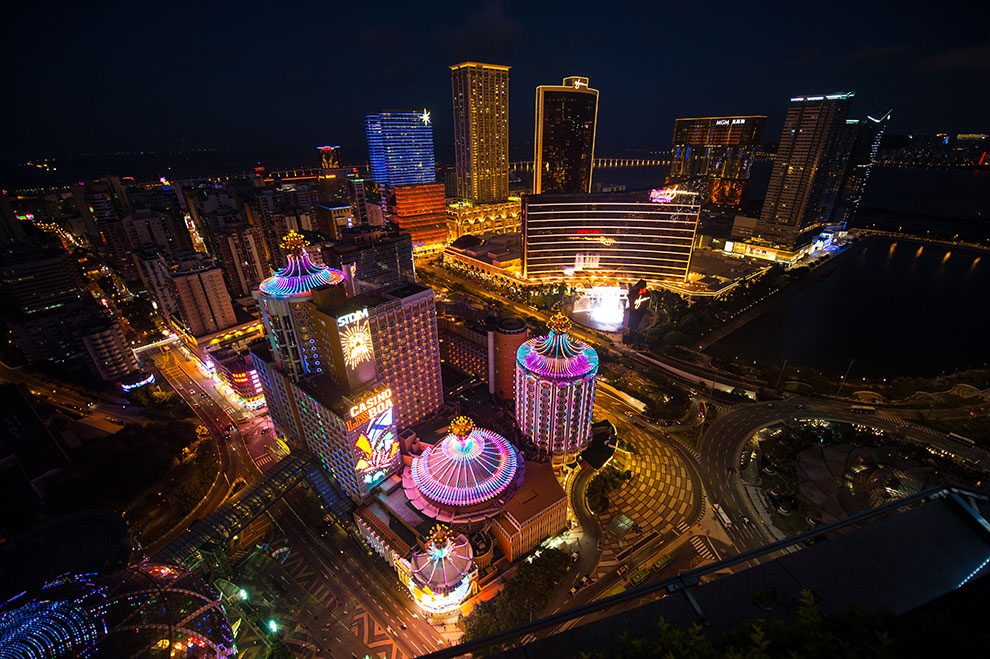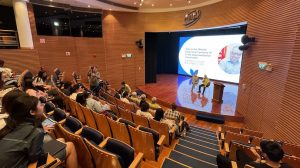Macao is the world’s largest gaming destination as measured by gross revenue. The city boasts more than 30 casinos and it is home to some of the most iconic gaming resorts in the world. While all that helps to attract tourists to the territory, the travel experience of those who visit Macao is likewise impacted by many non-gaming factors, says a study by Dr. Anthony Wong Ip Kin – a former scholar at the Institute for Tourism Studies – and IFT Assistant Professor Dr. Li Xiangping.
Their research suggests the existence of “an intricate web of relationships between various destination services”, the 2 scholars wrote in their academic paper “Destination Services and Travel Experience in the Gaming Mecca: the Moderating Role of Gambling as a Travel Purpose Among Chinese Tourists”, published in the Journal of Travel and Tourism Marketing.
They said: “Findings from the current study show that the services of various destination attributes are central in creating a favourable travel experience among Chinese tourists… Our findings show that while the glittering casinos may bring in millions of Chinese tourists, and services of the gaming facilities rank at the top in Macao, the services of other destination attributes complement the ‘dragon head’ gambling industry and co-create favourable travel experiences for the Chinese tourists.”
The 2 authors identified a total of 8 destination services impacting visitor travel experience to Macao. Those included: tour sites; entertainment facilities; gaming facilities; accommodation facilities; dining facilities; transportation facilities; environment and cleanliness; and overall service quality.
“For instance, overall service quality is correlated with the performance of the other 7 service attributes, suggesting that each of the individual travel and hospitality service aspects do not stand alone,” Dr. Wong and Dr. Li explained. “Each of these service offerings represents a value-added component to a destination’s overall tourism product mix.”
The study was based on the results of a face-to face survey of 300 ethnic Chinese visitors – including from Mainland China, the Hong Kong SAR, Chinese Taiwan and Malaysia – to the Macao SAR. The questionnaire covered several areas, including travel purpose of respondents, and questions on destination service and respondent travel behaviour.
Casinos matter, but not much
An issue highlighted in the study was the role of gambling as a travel purpose and its impact on the relationship between destination services and tourist travel experience. For that, the authors divided the study’s sample into 2 groups, based on whether they came to Macao for gambling purposes or not.
“While gamblers were more satisfied with the services of the gaming facilities and visited Macao more often, the effect of gaming services on travel experience… [was] not significant,” Dr. Wong and Dr. Li said. “Gaming services are still central to casinos but they become a hygiene factor (i.e. important but does not lead to satisfaction) in that gamblers take them for granted,” they explained.
The study findings showed that both gambler and non-gambler tourists were more likely to return to a gaming destination if it could offer a high level of both gaming and non-gaming services. The research concluded that a successful gaming destination should include in its offering “excellent services within a wide range of travel and hospitality offerings such as dining, gaming and non-gaming entertainment, transportation and tour sites.”
The study also found that Chinese gamblers were less likely to recommend a destination to others than non-gamblers, even when they had a favourable travel experience relating to that place. “This may be attributed to the fact that Chinese society still perceives gambling as something negative,” the 2 authors said.
The paper also suggested that “a transformation from the traditional hardcore gambling experience to a more diverse casino and gaming destination experience” was already taking place in Macao.
Dr. Wong and Dr. Li noted that their study highlighted the dangers of relying solely on gaming to attract visitors, pointing to the need to diversify tourism offerings and related infrastructure. “Since many of the Asian gaming destinations, such as Macao, Singapore and Manila, have a rich mix of culture and architectural offerings, they may also develop their own version of creative tourism as a complement to their gambling infrastructures,” the authors suggested.
They added: “As Chinese tourists are travelling outside of their country like never before, gaming destinations should avoid relying solely on gambling as it could become mundane and the destinations could be deemed to be commonplace.”
More info
Dr. Li Xiangping is an Assistant Professor at IFT. She earned a doctorate in hospitality and tourism management from the Virginia Polytechnic Institute and State University, popularly known as Virginia Tech, in the United States. Dr. Li’s main areas of research interest include: tourist behaviour, destination management and marketing, and international tourism development.
http://www.tandfonline.com/doi/full/10.1080/10548408.2014.986014









